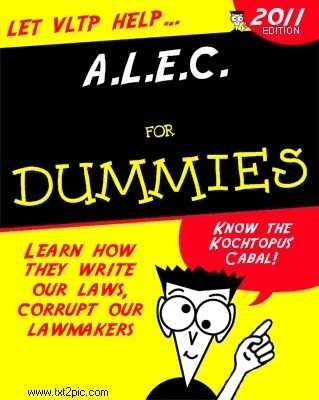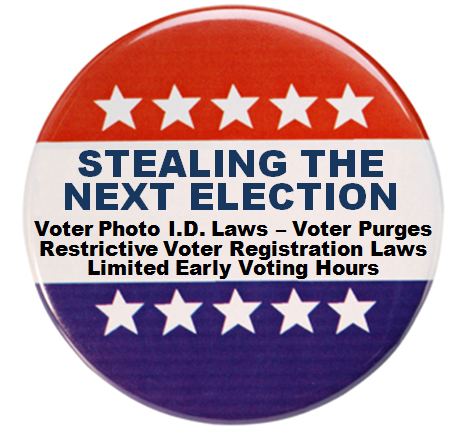GREEN Reactor: Yes, Dennis, voter issues are real
 A few years ago I wrote the Key West Reactor column for the former Key West The Newspaper, edited by Dennis Reeves Cooper (who now writes a retrospective and opinion column for this paper). Though we had our disagreements over the years (e.g., over his bashing of Norma Jean Sawyer), our relationship was civil, and continues to be. He didn’t impose constraints on my articles, even when they conflicted with his distinctly right-of-center POV. So I hesitate to react resolutely to what he writes these days. But last week’s article “WHAT HAPPENED TO THE VOTER ID CONTROVERSY?” can’t go unchallenged — after all, my handle is Re-ac-tor for a reason….
A few years ago I wrote the Key West Reactor column for the former Key West The Newspaper, edited by Dennis Reeves Cooper (who now writes a retrospective and opinion column for this paper). Though we had our disagreements over the years (e.g., over his bashing of Norma Jean Sawyer), our relationship was civil, and continues to be. He didn’t impose constraints on my articles, even when they conflicted with his distinctly right-of-center POV. So I hesitate to react resolutely to what he writes these days. But last week’s article “WHAT HAPPENED TO THE VOTER ID CONTROVERSY?” can’t go unchallenged — after all, my handle is Re-ac-tor for a reason….
In the column Dennis asks that question rhetorically, because he doesn’t really think that there WAS a problem with requiring voter ID. So I’ll put off answering THAT question by first commenting on several of the points made in the column….
A primary part of that argument was that, apparently, many of the poor and elderly don’t have photo IDs and can’t figure out how to get one– which seems insulting if you ask me.
For a white person who’s always HAD a photo-ID this may seem like a trivial issue. But it is a fact that there ARE a significant number of legitimate citizens – mostly from poor communities, or elderly people whose records were issued long ago and since lost– that just don’t have clear documentation of their birth. Since acquiring most forms of photo ID depend on at LEAST having a birth certificate, acquiring such IDs – especially on the short notice that was given prior to the last election — is not a trivial task. Those who poo-poo this reality as a non-issue often seem to look down on the affected people as not deserving enough of the right to vote anyway. But of course they’ll deny racism with vigor.
No matter that people who want to fly cannot get on an airplane without a photo ID. Is that discriminating against the poor and elderly?
Ah, the old “you need a photo ID to do THIS or a photo ID to do THAT” smokescreen. Most of these other things need it for SECURITY purposes. But nobody ever got hurt by an irate voter. Just think: how many are REALLY going to lie about who they are – and face years in prison if caught – just to cast a ballot?
Voters. Do. Not. Have. To. Have. Photo IDs. To. Vote. Here! For example, if Grandma Fletcher votes with an absentee ballot, she does not have to have a photo ID. But her signature does have to match the signature on her registration form.
THANK YOU. You have just confirmed why the photo ID requirement is totally unnecessary!
The key point about the voter ID laws is that they weren’t REALLY adopted to prevent voter fraud, despite that excuse being given (and accepted by the right-wingers of America).  They were part of a larger package of voter-suppression laws pushed by A.L.E.C. (the radical right/big biz “American Legislative Exchange Council” think tank).
They were part of a larger package of voter-suppression laws pushed by A.L.E.C. (the radical right/big biz “American Legislative Exchange Council” think tank).
ALEC focused on pushing Teapublican (or Teapublican-fearing) Governors and state legislatures to follow their schemes. Saying this isn’t a paranoid tin-foil-hat delusion, it’s a well documented strategy widely reported but rarely thoroughly discussed – at least within the Corporate news media. ALEC continues to push red and purple state governments to pass these suites of laws to help with keeping blue voters from challenging red rule. Or in some case to help overturn blue rule (can you say Wisconsin?)
Other aspects of the voter suppression package are:
- Reduction of early voting days, especially on Sundays. Many working-class voters – less friendly to Big Business interests — work long hours and find it harder to get off work to vote – this makes it harder. And it’s common for church groups in poor and middle-class black communities to help get their people to the polls after Sunday services – can’t have THAT!
- Denial of restoration of voting rights to felons who have already paid their debt to society. Many of these felons were convicted of non-heinous drug-related infractions and are considered less likely to vote for “conservative” causes.
- Expedited (often careless) purging of voter registrations for people merely SUSPECTED of being undocumented (often on flimsy evidence). In 2012 after the ALEC laws went into effect in Florida, Slick Rick’s people put together a list of over 182 THOUSAND suspected illegal voters. Its overreach was so laughable it was quickly culled down to less than THREE thousand. And that data was so sloppy that most Florida election supervisors refused to waste their time on it.
- Interference with student voting. Because so many of our emerging generations have turned their back on the regressive right wing, laws made it harder for residents of colleges or universities to vote locally. Unless arrangements are made “back home” (which in the past would flout residency requirements), students could not vote.
- And of course the voter ID issues discussed above.
It’s a FACT that as of 2012 there had only been 178 voter fraud cases pursued in Florida since 2000 – an average of less than 15 a year. And Florida has almost 12 MILLION registered voters. So this “all-important overriding effort” has been an attempt to ferret out about 1/10000 of 1% of the State’s voters in any given year. Hot damn, that’s serious! Uh-huh. And it’s sure worth disenfranchising all those people who have a RIGHT to vote, to save us from this huge epidemic of cheaters…..
 But all that discussion is really moot, because the Teapublicans involved in all this have actually come out of the closet and ADMITTED that the reason for it all is to suppress voters not of their own ilk. Once the mock-seriousness of their “our voting system is at risk!” contention was thoroughly debunked, some of them have just moved on to a “yeah, we got ya – but try to stop us” attitude. And unfortunately their carefully packed wing of the Supreme Court – who has already shown their willingness to throw away hard-fought recognition of basic civil rights – will make it harder to overturn all of these ill-intentioned laws anytime soon.
But all that discussion is really moot, because the Teapublicans involved in all this have actually come out of the closet and ADMITTED that the reason for it all is to suppress voters not of their own ilk. Once the mock-seriousness of their “our voting system is at risk!” contention was thoroughly debunked, some of them have just moved on to a “yeah, we got ya – but try to stop us” attitude. And unfortunately their carefully packed wing of the Supreme Court – who has already shown their willingness to throw away hard-fought recognition of basic civil rights – will make it harder to overturn all of these ill-intentioned laws anytime soon.
But it’s all just a last-ditch effort that can’t stand up to the rising tide. They may be able to convince a few more of the uninformed that progress is evil and black isn’t American and the poor are stealing from “us” — but they ARE a dying breed. One more generation is all it will take to marginalize these dinosaurs and we can get back to moving forward, back to being a proud and FAIR nation.
http://billmoyers.com/episode/full-show-united-states-of-alec-a-follow-up/
The American Legislative Exchange Council is better-known today than at any time in its 40 year history.
For most groups that seek to influence the governing process that would be something to celebrate. But ALEC, the corporate-funded project that develops “model legislation” to be introduced by conservative legislators across the country, historically worked off radar.
No more.
The group highlighted by the 2011 “ALEC Exposed” project of the Center for Media and Democracy and The Nation, has in recent years been the subject of investigations and inquiries by media outlets across the country. It has been the focus of a nationally-broadcast “United States of ALEC” documentary by Moyers & Company. It has been called out by groups such as Color of Change and Common Cause. It has been abandoned by 49 corporations (from Amazon.com to Wal-Mart) that once paid for its initiatives.
ALEC has been decried by labor, environmental and clean government groups in state capitols across the country. National political figures, such as Illinois Senator Dick Durbin, are launching inquiries into how the group promotes its legislative agenda. And this week, as ALEC gathers its corporate and legislative “members” in the city of its founding to celebrate four decades of service to special interests and ambitious politicians, demonstrations against the group have drawn thousands of union members, civil rights activists and social justice campaigners into the streets of Chicago.
An organization that once held its annual meetings virtually unnoticed is now met with mass protests so large that streets around its hotel were closed Thursday as activists staged “die-ins” recalling ALEC’s role in the passage of so-called “Stand Your Ground” laws and headlines screamed: “ALEC convention protests: Labor vs. lobbyists.”
ALEC has felt the pressure of public scrutiny. Last year, the group distanced itself from some of its more controversial initiatives, such as restrictive “Voter ID” laws and the “Stand Your Ground” measures that gained national attention after the killing of Trayvon Martin in Florida.
Yet, with continued backing from long-time allies such as the Koch Brothers and the support of corporations that have disregarded calls from civil rights groups for them to quit the council, ALEC remains a defining force in statehouses across the country. A new report from the Center for Media and Democracy details the extent of the group’s ongoing engagement.
CMD has identified 466 ALEC bills that were introduced during in state legislatures during 2013 sessions. At least 84 of these measures have become law.
According to CMD:
* One hundred and seventeen ALEC bills that seek to restrict worker rights, weaken unions, promote privatization and undermine advocacy for wage hikes. At least 14 of these measures have become law.
* One hundred and thirty nine ALEC bills that address education issues with proposals to use taxpayer dollars to fund private schools among the favorites. At least 31 ALEC education measures have become law.
* Seventy-seven ALEC bills that CMD says “promote a fossil fuel and fracking agenda and undermine environmental regulations.” At least 17 of these measures have become law.
ALEC’s influence is broad, as is its legislative legacy. The CMD report explains that, “Despite ALEC’s effort to distance itself from Voter ID and Stand Your Ground by disbanding its controversial Public Safety and Elections Task Force, 62 of these laws were introduced: 10 Stand Your Ground bills and 52 bills to enact or tighten Voter ID restrictions. Five states enacted additional Voter ID restrictions, and two states passed Stand Your Ground.”
Indeed, among the featured speakers at ALEC’s 40th annual meeting is former Florida Governor Jeb Bush, who signed the “Stand Your Ground” law that provided the outline for the group’s model legislation.
So ALEC is still very much what ALEC has been for decades: a key player, perhaps the key player, in advancing the corporate agenda on a host of issues in statehouses across the country.
What has changed for ALEC is that a lot more Americans are now paying attention to its advocacy.
New national campaigns to get corporations and foundations to quit ALEC are ramping up.
So, too, are efforts to ask whether ALEC, which says it is not a lobbying group, should have to follow federal and state rules that are supposed to regulate groups that seek to influence the legislative process.
Legislators in a number of states have proposed that ALEC be required to follow existing lobbying laws when, as Center for Media and Democracy executive director Lisa Graves says, they are “(advancing) the lobbying agenda of special interests to the detriment of ordinary Americans.”
On Monday Common Cause and CMD submitted a joint letter to the IRS requesting “an immediate investigation into the American Legislative Exchange Council’s massive underreporting of payment for state lawmakers’ travel on its Form 990s, filed with the Internal Revenue Service.”
The letter charges that ALEC “engaged in an impermissible amount of lobbying and served private rather than public interests.”
In addition to asking for the federal examining of whether ALEC’s approach is appropriate in light of its 501(c)(3) tax exempt status, the groups are also asking state ethics officials to determine if ALEC’s “scholarship” programs complies with state gift and disclosure laws.
Common Cause and CMD argue that the conflict is clear.
“Ultimately,” the groups argue in their letter to the IRS, “ALEC’s scholarship fund activity provides private benefits to two core constituents: 1) state legislators, who receive all-expense-paid vacations and 2) corporate donors, who are able to obtain “business friendly” legislation through this influence peddling.”